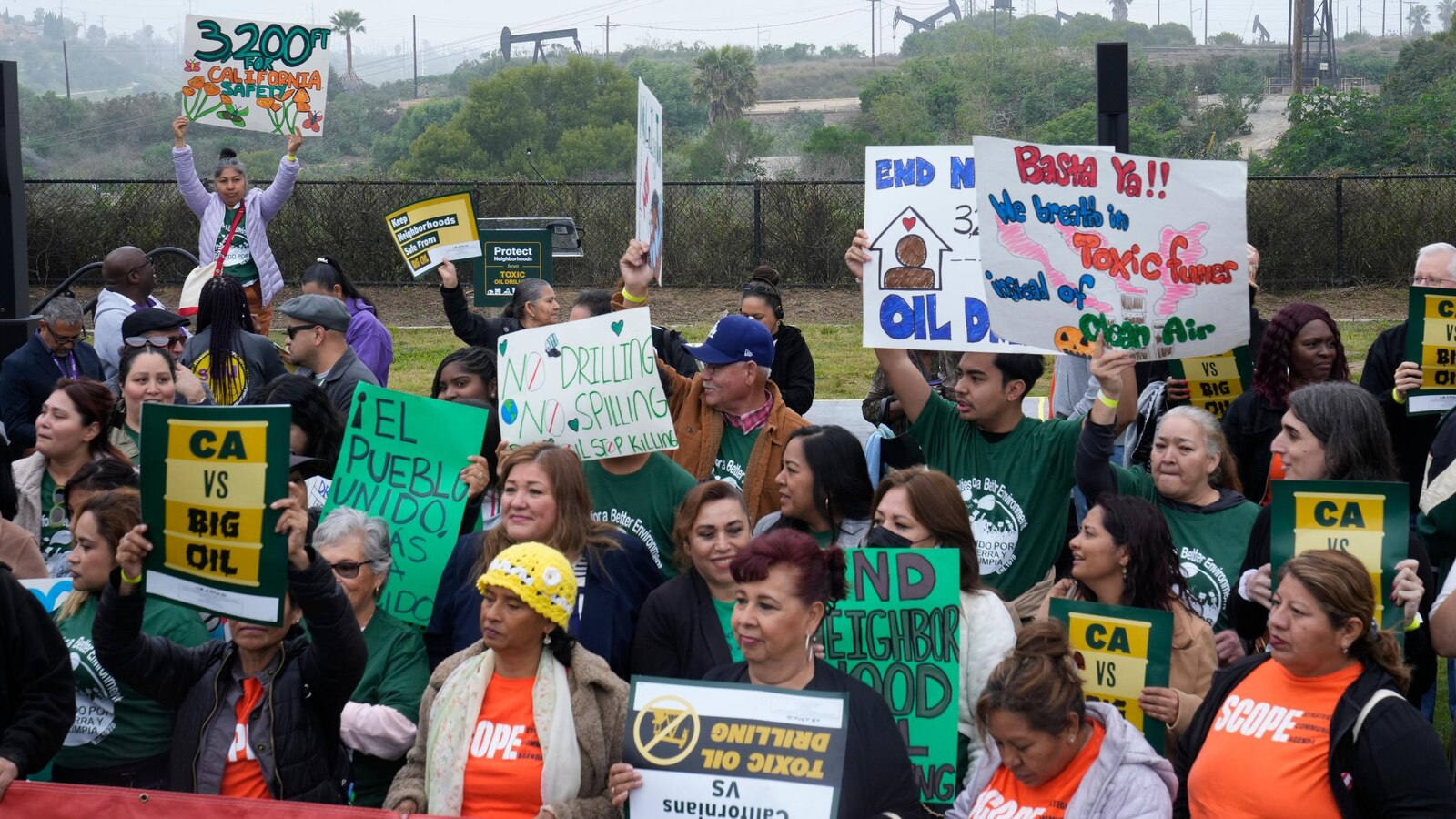SACRAMENTO, Calif. — A California law that bans drilling new oil wells near places like homes and schools will take effect soon after the oil industry said it would withdraw a referendum from the November ballot asking voters to block it.
The law, first passed in 2022, never took effect because the California Independent Petroleum Association gathered enough signatures for the referendum.
The association announced Wednesday it would withdraw the referendum. Instead it plans to file a lawsuit asking a judge to block the law.
The announcement shakes up what has become a crowded November ballot. Both sides had been gearing up for what would have been an expensive campaign.
California was the nation’s leading oil producing state over a century ago, but it has since been surpassed by Texas, New Mexico, North Dakota, Colorado, Alaska and Oklahoma.
The oil industry has still remained a powerful force in state politics, known for having its way at the state Legislature. But that influence has been declining, along with the state’s oil production.
The 2022 law bans drilling new wells within 3,200 feet (975 meters) of “sensitive receptors,” defined as homes, schools, hospitals, nursing homes, retirement homes, prisons and any business that is open to the public.
In asking voters to block the law, the oil industry’s strategy was to portray it as an “energy shutdown.” The argument was that it would only increase the state’s dependence on foreign oil and contribute to California’s high gas prices, which remain among the highest in the country.
Supporters of the law countered by saying oil wells spew harmful pollution that increases the risk of ailments like asthma and cancer.
The California Independent Petroleum Association disputed those claims. But it decided that “supporters of the energy shutdown can make unfounded claims in the press and in paid advertisements, but they can’t make those claims in court without evidence,” said Jonathan Gregory, the association’s president and CEO of oil and gas company RMX Resources.
“That’s why we are pivoting from the referendum to a legal strategy,” Gregory said.
Supporters of the law took the news as an admission of defeat from the oil industry. Mabel Tsang, political director for the California Environmental Justice Alliance, said passing the law and seeing the referendum removed was the result of a “multiple decade fight” for communities near oil drilling. The withdrawal also came after supporters launched a statewide campaign in March to keep the law, with backing from the likes of Arnold Schwarzenegger, Jane Fonda and Gov. Gavin Newsom.
“Big oil saw what they were up against — and they folded, again,” Newsom said in a statement. “No parent in their right mind would vote to allow drilling next to daycares and playgrounds.”
The Legislature had been applying pressure to the oil industry, too. Assemblymember Isaac Bryan, a Democrat from Los Angeles whose district includes the largest urban oil field in the United States, introduced a bill that would have fined companies $10,000 per day from operating wells near homes and schools that produce less than 15 barrels per day.
Bryan, in an interview, said he agreed to limit the scope of that bill to just the oil field in his district, known as the Inglewood Oil Field.
“That was the gift from me to them in exchange for them agreeing to pull back this measure,” Bryan said.
State Sen. Lena Gonzalez, a Democrat from Long Beach who authored the ban on new oil wells, said she was confident the law would withstand a lawsuit. She said the law finally taking effect will mean cleaner air for her community, which includes her three sons.
“I never thought this would actually happen because of the power and influence sometimes in this building,” she said, speaking in the Capitol. “This time, oil didn’t win, and this time our community won.”

